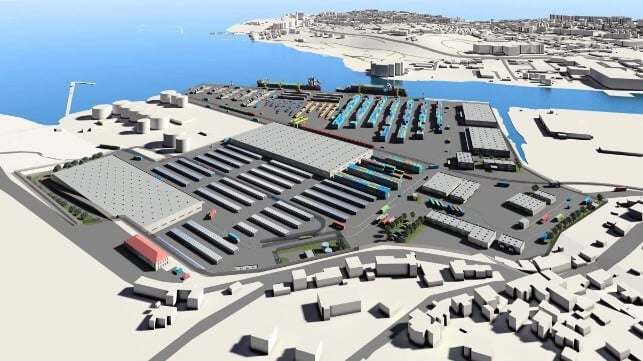Hungary Begins Construction of Sovereign Port in Northern Italy

Landlocked Hungary’s quest for access to the sea is nearing completion with the launch of construction of a new seaport in Trieste, Italy, 140 miles and two nations away from Hungary's border. Hungarian Deputy Foreign Minister Levente Magyar attended the groundbreaking ceremony last week in the company of the Italian Deputy Minister for Infrastructure, Edoardo Rixi.
Hungary announced the port project back in 2019 after the purchase of an 80-acre seafront site in Trieste. At the time, the transaction was valued at $32 million under a 60-year concession contract. The first phase of the port includes building a 250-meter quay wall, to be later expanded by about 400 meters, giving Hungary a total of 650 meters of coastline on the Adriatic Sea.
Adria Port Zrt., a Hungarian state-owned company, is entrusted with developing the Trieste Port project. The $209 million facility is expected to be operational by 2028. It will have capacity for 78,000 TEU of cargo a year. A logistics center is also planned at the site to streamline the movement of goods. Trieste is a strategic location for a Hungarian seaport, given its proximity and reliable rail and road connection to Hungary.
“Hungary exports cargo worth around $155 billion every year, with majority of them leaving Europe by sea. If the country does not have its own sea exit and seaport capacity, it will always be at the mercy of others. We would like to change this situation, because Hungary, as the 34th largest exporter in the world, must have channels to connect to global supply chains,” said Levente Magyar.

that matters most
Get the latest maritime news delivered to your inbox daily.
Hungary lost its sea access in 1920 after conceding defeat in the World War I. This led to the signing of the Trianon Treaty, which saw Hungary lose two-thirds of its former territory, including a vast coastline.
In the recent past, Hungary has intensified cooperation with its coastal neighbors for maritime access. Last month, Hungarian Minister for National Economy Márton Nagy met Bulgarian President Rumen Radev for economic talks. This saw the signing of cooperation agreements in the transport sector. The partnership will lead to the creation of a simplified logistics and transport corridor linking Hungarian businesses with Bulgarian ports and free zones in the Black Sea. The Hungarian government has said that Bulgaria is a critical partner for its energy security, providing a transit route for Russian, Turkish and Azerbaijani natural gas supplies by pipeline.
